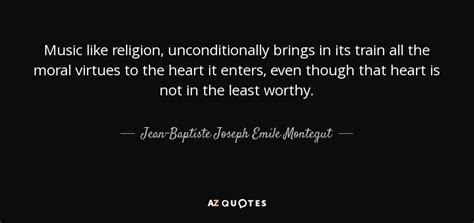A Quote by Ralph Waldo Emerson
The progress of religion is steadily to its identity with morals. Strength enters just as much as the moral element prevails.
Related Quotes
An important advance in the life of a people is the transformation of the religion of fear into the moral religion. But one must avoid the prejudice that regards the religions of primitive peoples as pure fear religions and those of the civilized races as pure moral religions. All are mixed forms, though the moral element predominates in the higher levels of social life. Common to all these types is the anthropomorphic character of the idea of God.
[F]or avoiding the extremes of despotism or anarchy . . . the only ground of hope must be on the morals of the people. I believe that religion is the only solid base of morals and that morals are the only possible support of free governments. [T]herefore education should teach the precepts of religion and the duties of man towards God.
God doesn't help. I think that's a knockdown argument. I think that it really shows that whatever moral knowledge we have and whatever moral progress we make in our knowledge or whatever progress we make in our moral knowledge is not coming really from religion. It's coming from the very hard work really of moral philosophy, of trying to ground our moral reasonings.
Science is a magnificent force, but it is not a teacher of morals. It can perfect machinery, but it adds no moral restraints to protect society from the misuse of the machine. It can also build gigantic intellectual ships, but it constructs no moral rudders for the control of storm tossed human vessel. It not only fails to supply the spiritual element needed but some of its unproven hypotheses rob the ship of its compass and thus endangers its cargo.
If you are training properly, you should progress steadily. This doesn't necessarily mean a personal best every time you race ... Each training session should be like putting money in the bank. If your training works, you continue to deposit into your 'strength' account ... Too much training has the opposite effect. Rather than build, it tears down. Your body will tell when you have begun to tip the balance. Just be sure to listen to it.









































